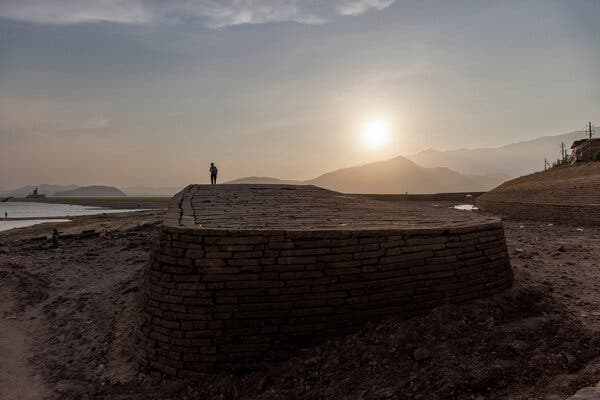How Climate Change is Disrupting the Global Supply Chain
The Covid pandemic has been the main focus of disruption to the global supply chain in the last two years, but the threat of climate change is far more serious and is already being felt. From floods to wildfires, extreme weather is increasingly hammering ports, highways, and factories worldwide, and the disruptions are only going to get worse. Last year alone saw the Texas freeze, the Rhine River drought, flooding in China, Hurricane Ida, and the British Columbia wildfires and floods, all of which had a major impact on the global economy.
The biggest threat to supply chains from climate change is sea level rise, which will eventually inundate ports and other coastal infrastructure. But even now, before sea level rise begins, supply chain disruptions caused by increasingly extreme weather are jolting the global economy. These disruptions are forcing railroad closures, reducing shipping capacity on rivers, and damaging industrial installations. They are also causing shortages of commodities, forcing the closure of automobile plants, and disrupting the semiconductor supply chain.
Scientists say that climate-related disruptions are only going to intensify in coming years as the world warms. Around 90 percent of the world’s freight moves by ship, and most of the world’s 2,738 coastal ports will be threatened by increases in sea level of an estimated 2 to 6 feet — and perhaps more — by 2100. Companies must take steps now to prepare for these disruptions and ensure their supply chains remain resilient in the face of climate change.


This is a very informative article. I’m surprised to learn that 90% of the world’s freight moves by ship. What other measures can companies take to prepare for climate-related disruptions? Thanks for the great article, author!
This is an incredibly important article! Companies need to start taking steps now to ensure their supply chains remain resilient. It’s great to see articles like this raising awareness of the potential impacts of climate change. Does anyone have any recommendations for companies that are already taking steps?